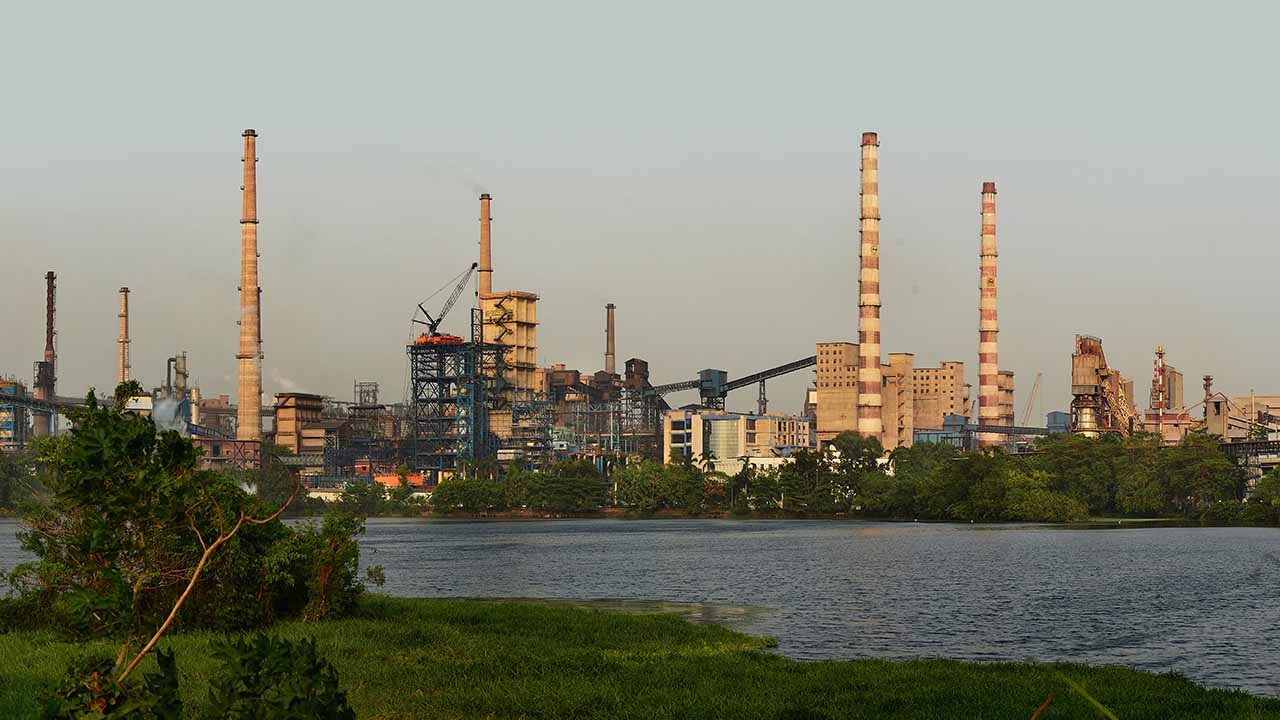Tata Steel has commenced trials for continuous injection of coal bed methane (CBM) gas into one of its blast furnaces (E-Blast Furnace) at Jamshedpur Works. This is the first instance in the world of a steel company using CBM as an injectant. The process is expected to reduce the rate of coke by 10 kg/thm, which would be equivalent to reducing 33 kg of CO2 per tonne of crude steel. The trial will last for the next few weeks.
The technology, design and development of the entire system in the E-Blast Furnace to facilitate CBM injection has been done by the in-house team of Tata Steel. Debashish Bhattacharjee, Vice President, Technology and New Materials Business, Tata Steel, said climate change conversations have gained unprecedented momentum in recent years. “Given this imperative, the steel industry also urgently needs to explore sustainable alternatives to reduce its environmental footprint, where it is generally considered difficult to reduce the environmental impact. At Tata Steel, we are on a journey to go carbon-free and this initiative is another step towards this objective. We will continue to innovate and invest to drive the transition towards sustainable manufacturing,” he added.
Tata Steel’s Vice President of Iron Making, Uttam Singh said that the technologies to decarbonise steel on a large scale are not ready yet. Tata Steel has taken several technology initiatives including pilots and trials to explore new and scalable solutions for decarbonisation. This initiative of CBM injection in blast furnaces will provide us with useful insights into the operation of blast furnaces with hydrogen-based injectants and will help in reducing emissions. We are on a mission to reduce carbon dioxide emissions to 1.8 tonnes of carbon dioxide per tonne of crude steel by 2030. This test will help determine the extent of reduction in coke rate used in blast furnaces and its effect on productivity and will provide useful insights about the operation of blast furnaces with hydrogen-based injectors. This information will be used to create a roadmap for the future sustainable operation of blast furnaces with more hydrogen-rich green fuels.
CBM mainly consists of 98 percent methane with some amount of other gases extracted from underground coal deposits. India is endowed with abundant resources of CBM, the main source of which is the eastern region of the country. This offers a promising opportunity both logistically and economically to take advantage of the use of CBM for injection purposes. Tata Steel is continuously investing in breakthrough technologies to achieve the highest environmental performance standards through process improvement, efficient raw material and resource management, optimum utilization of by-products, lifecycle assessment of products, etc. Taking the lead in sustainability, the company commissioned India’s first steel recycling plant in Haryana, started using electric vehicles to transport finished steel and set up India’s first plant for CO2 capture from blast furnace gas in Jamshedpur.





























